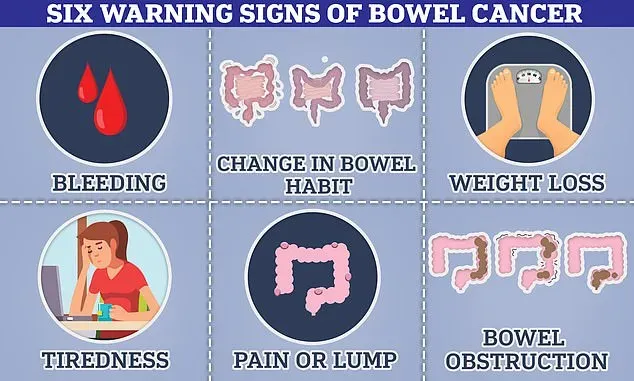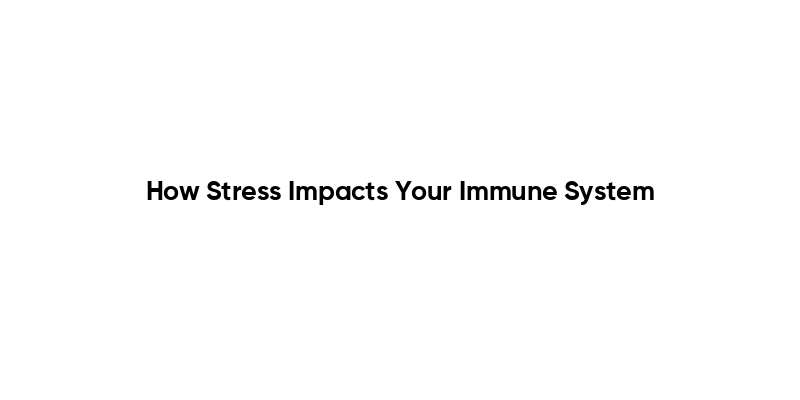Bowel cancer symptoms can often be subtle and easily overlooked, making awareness critical for early detection and treatment. Common signs include abdominal discomfort, such as sharp stomach pain, which can be mistaken for minor digestive issues. Patients might also experience fatigue, changes in bowel habits, and even night sweats, which can signal a more serious underlying condition. Ignoring these early bowel cancer signs may lead to late-stage bowel cancer, where the disease has progressed significantly and can complicate treatment options. It’s essential for individuals, especially young adults, to recognize these potential symptoms and seek medical advice promptly.
When discussing gastrointestinal health, it’s important to be aware of the various indicators that may suggest a serious illness like colorectal cancer. Symptoms such as persistent digestive discomfort, fatigue, and unusual sweating patterns could be linked to more severe health problems. Younger demographics, particularly, should be vigilant about any significant changes in their bodily functions, as signs of cancer in young adults may manifest differently than in older populations. The emergence of abdominal pain, for instance, should prompt individuals to consider their health and whether it necessitates a consultation with a healthcare professional. Recognizing these early warning signs can be lifesaving and lead to better outcomes in the battle against cancer.
Recognizing Bowel Cancer Symptoms Early
Bowel cancer symptoms can often be subtle, making them easy to overlook, especially in individuals who lead active lifestyles. For many, including otherwise fit and healthy individuals, common signs such as persistent stomach pain or changes in bowel habits can be mistaken for less serious conditions like irritable bowel syndrome (IBS). Sharp and stabbing pains in the abdomen, such as those experienced by Krystal Maeyke, can signal underlying issues that warrant immediate medical attention. These symptoms should not be dismissed, as they could indicate the presence of tumors developing within the bowel.
Early recognition of bowel cancer symptoms is crucial for effective treatment and better outcomes. Symptoms such as persistent discomfort, irregular bowel movements, unexplained weight loss, and even night sweats can be pivotal clues. Ignoring these signs can lead to advanced stages of the disease, as demonstrated by the unfortunate case of Ms. Maeyke, who experienced significant pain for months before seeking help. It’s essential to maintain an ongoing dialogue with healthcare providers about any symptoms that persist or worsen over time, as early intervention can drastically improve the prognosis.
The Link Between Night Sweats and Cancer
Patients like Krystal Maeyke have noted night sweats as a significant yet often dismissed symptom of serious health issues. Night sweats, which can result from the body’s response to cancerous growths, are not merely a side effect of heat or environmental factors. For some, like Ms. Maeyke, the experience of waking up soaked in sweat is alarming and indicative of underlying problems that require investigation. Understanding the potential relationship between night sweats and malignancies is vital for anyone experiencing this symptom, particularly when it is persistent.
While researchers continue to explore the connection between night sweats and cancer, they acknowledge that the body’s fight against illness, including hormonal fluctuations induced by tumors, can contribute to this phenomenon. In cases of bowel cancer, persistent night sweats might exhibit how the body is reacting to the stress and strain of disease progression. Therefore, anyone experiencing excessive sweating at night should consult their healthcare provider to rule out serious conditions. Early detection and diagnosis could lead to timely interventions, improving quality of life and survival rates.
Common Signs of Cancer in Young Adults
The rise in bowel cancer rates among young adults poses a unique challenge, as many younger individuals believe they are invulnerable to such health issues. However, as seen in Krystal Maeyke’s case, it is increasingly evident that cancer does not discriminate by age. Common signs of cancer in young adults, such as persistent stomach pain, unexplained weight fluctuations, and changes in bowel habits, should not be ignored. These symptoms may not necessarily indicate cancer, but they are worth discussing with a healthcare professional, particularly if they persist or intensify.
Additionally, being aware of the signs of cancer in young adults, including unusual fatigue, changes in appetite, and digestive disturbances, can empower individuals to seek help sooner rather than later. Statistics indicate a concerning trend in younger demographics facing terminal diagnoses, with healthcare professionals urging increased vigilance. Addressing these warning signs early helps avoid potentially dire consequences and aids in timely treatment initiatives that can significantly impact outcomes.
Understanding Late-Stage Bowel Cancer
Late-stage bowel cancer, often referred to as stage four, signifies advanced disease where cancer has spread beyond the primary site to other organs. For patients like Krystal Maeyke, this diagnosis came as a devastating shock, especially as they may have previously experienced symptoms that were simply overlooked. In late-stage bowel cancer, patients may endure severe symptoms, including debilitating pain, extreme fatigue, and complications with digestion, which can drastically affect quality of life.
The prognosis for late-stage bowel cancer can be challenging, as treatment options may focus more on management rather than a definitive cure. It underscores the importance of early detection and regular screenings to catch any anomalies before they progress to a late stage. Awareness campaigns stressing the signs and symptoms specific to bowel cancer are crucial, particularly in educating young adults about their risks and actions they should take upon noticing persistent health issues.
The Importance of Routine Check-ups for Early Diagnosis
Routine medical check-ups are essential for early diagnosis of conditions like bowel cancer, particularly for individuals who may not fit the typical high-risk profile. Ms. Maeyke’s experience highlights the peril of ignoring persistent symptoms and the dire consequences that can follow. Regular screenings and consultations with healthcare professionals can lead to earlier detection, improving treatment options and survival rates. Adaptations to medical guidelines are necessary to ensure younger populations are adequately monitored for signs of cancer.
Encouraging an open dialogue about health concerns within families and communities often leads to increased awareness and proactive measures regarding cancer symptoms. Young adults must feel empowered to seek medical advice, particularly when experiencing abnormal changes in their bodies. Initiatives aimed at fostering a culture of preventative healthcare can equip individuals with the knowledge necessary to recognize the importance of addressing health symptoms promptly, leading to better health outcomes in the long run.
The Psychological Impact of Cancer Diagnosis
Facing a cancer diagnosis carries immense psychological weight, not just for the patient but also for their loved ones. Krystal Maeyke’s reflections on her journey emphasize the emotional turmoil and the thoughts surrounding her son’s future. The fear of loss, the uncertainty of treatment outcomes, and the struggle to maintain daily life can be overwhelming. Support systems including friends, family, and mental health professionals play a crucial role in helping individuals navigate the complex emotional landscape associated with cancer.
The impact of a cancer diagnosis extends beyond physical health concerns, often leading to anxiety, depression, and stress within families. Young patients like Ms. Maeyke may grapple with thoughts about their responsibilities and the potential disruption of their roles in the lives of their children and loved ones. Addressing these mental health aspects is critical in holistic cancer care, ensuring patients receive comprehensive support that addresses both their physical ailments and psychological needs.
Lifestyle Choices and Bowel Cancer Risk
Lifestyle factors are increasingly recognized as contributing to the risk of developing bowel cancer, even among those who appear fit and healthy. Diet, physical activity, and environmental exposures can play significant roles in cancer development. While genetics do factor into individual risk, the rising rate of bowel cancer in younger adults suggests that lifestyle choices and environmental influences may need greater scrutiny. Prevention strategies focusing on healthy eating, regular exercise, and minimizing exposure to potential carcinogens are essential in reducing risk.
As the understanding of bowel cancer evolves, research into how diets high in fiber, fruits, and vegetables can protect against bowel cancer grows. Awareness campaigns can empower individuals by informing them of the changes they can make in their lives to mitigate risks. It is crucial for young adults to recognize the significance of these lifestyle choices; they have the power to influence their health outcomes positively and potentially lower their risk of developing cancers like bowel cancer.
Generation of Awareness Through Social Media
In today’s digital age, platforms like TikTok serve as powerful vehicles for spreading awareness about critical health issues such as bowel cancer. Krystal Maeyke has utilized her social media presence to educate others on the signs, symptoms, and realities of living with cancer. By sharing her journey and experiences, she empowers others to seek medical attention for symptoms they might dismiss, bridging the gap between personal experiences and public health education.
The interactive nature of social media allows for discussions that can reach a wide audience quickly, facilitating greater awareness about cancer symptoms that may affect younger populations. The stories shared online can help destigmatize discussions around health and motivate individuals to take their symptoms seriously. As seen with Ms. Maeyke’s TikTok account, her openness about her challenges can inspire viewers to advocate for their health, potentially leading to earlier diagnoses and better management of illnesses.
Future Directions for Cancer Research and Treatment
As research into bowel cancer advances, understanding its varied presentations, particularly in younger populations, takes precedence. Growing awareness of the need for targeted research could lead to the development of more effective early detection methods and treatment strategies tailored to those under 50. This shift is crucial as trends indicate an increase in bowel cancer diagnoses among younger adults, necessitating a reassessment of existing screening guidelines and healthcare policies.
Moreover, innovative treatment options that focus on personalized medicine are paving the way for better outcomes for bowel cancer patients. Research exploring the genetic and molecular aspects of cancer can foster advancements in therapies that target tumors more effectively while minimizing side effects. As both healthcare providers and patients continue advocating for research funding and resources, the evolution of treatment methodologies presents hope for improved prognosis and living quality after diagnosis.
Frequently Asked Questions
What are some early bowel cancer symptoms to watch for?
Early bowel cancer symptoms often include changes in bowel habits, such as irregular bowel movements. Patients might also experience abdominal discomfort similar to stomach pain, fatigue, and unexplained weight loss. Awareness of these signs is crucial as they can sometimes be overlooked, thinking they are due to less serious conditions.
How do night sweats relate to bowel cancer symptoms?
Night sweats can occasionally signal serious health concerns, including bowel cancer. If you experience persistent night sweats that disrupt your sleep, it’s important to consult a healthcare professional. In some cases, these sweats are linked to the body’s response to cancer, as well as changes in hormone levels.
Are stomach pains a common sign of late-stage bowel cancer?
Yes, stomach pain is often reported by individuals with late-stage bowel cancer. These pains can start as mild discomfort and evolve into severe, stabbing sensations as the cancer progresses. If stomach pain is persistent and severe, it should not be ignored and warrants a medical assessment.
What are the signs of bowel cancer in young adults?
Bowel cancer signs in young adults can include unexplained weight loss, persistent abdominal pain, changes in bowel habits (such as diarrhea or constipation), and fatigue. Young adults may also experience symptoms like rectal bleeding or night sweats, which should prompt further investigation.
How can I differentiate between IBS and bowel cancer symptoms?
Distinguishing between IBS and bowel cancer symptoms can be challenging as both conditions may share similar signs, such as bloating and irregular bowel movements. However, if symptoms worsen over time, or if you experience significant abdominal pain, weight loss, or blood in your stool, it’s essential to seek medical advice to rule out bowel cancer.
Is there a connection between bowel cancer and persistent fatigue?
Persistent fatigue can be a symptom of bowel cancer, as the body diverts energy to fight the disease. If you feel tired despite adequate rest and nutrition, it’s a sign that should be discussed with a healthcare provider, especially when paired with other symptoms like abdominal pain or changes in bowel habits.
What are common misconceptions about bowel cancer symptoms?
One common misconception is that bowel cancer only affects the elderly. In reality, younger adults are increasingly diagnosed and should be vigilant for signs, such as unexplained stomach aches, changes in bowel habits, or any unusual symptoms like night sweats. Many individuals mistake these symptoms for benign issues, delaying necessary evaluations.
Should I be concerned about unexplained weight loss as a sign of bowel cancer?
Unexplained weight loss can indeed be a sign of bowel cancer and should not be taken lightly. It can occur due to the body’s response to cancer or because the tumors impact how the body absorbs nutrients. If you experience significant weight loss without trying, consult a healthcare provider.
| Symptom | Description |
|---|---|
| Sharp Stabbing Pains | Initially dismissed as a food allergy, these intensified to severe pain. |
| Fatigue | Constant tiredness mistaken for being a busy mother. |
| Irregular Bowel Movements | Thought to be IBS, but indicative of bowel issues. |
| Night Sweats | Extreme sweating at night misattributed to summer heat. |
Summary
Bowel cancer symptoms are critical to recognize, as they can signal severe health issues. In this case, Krystal Maeyke’s experience with sharp abdominal pain, fatigue, irregular bowel movements, and night sweats illustrate how easily these signs can be overlooked. Early diagnosis is essential for successful treatment, and understanding these symptoms can make a significant difference in outcomes.



